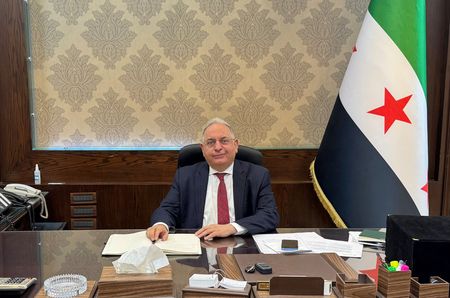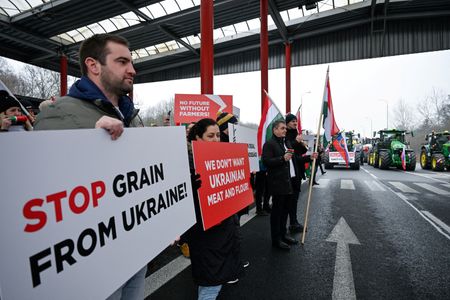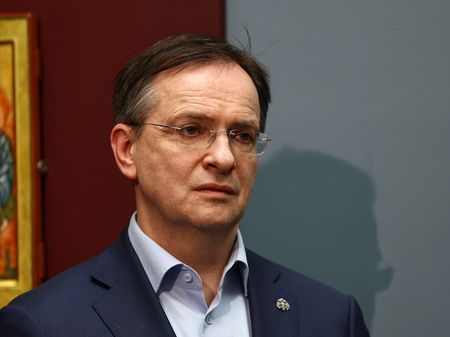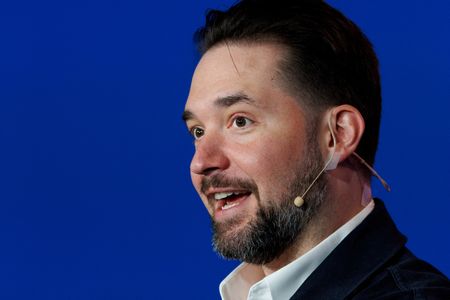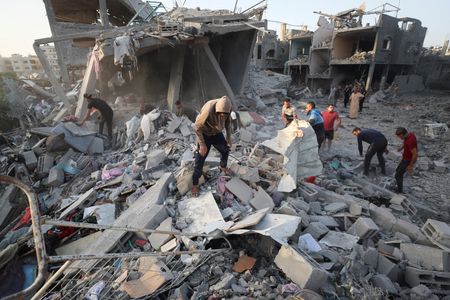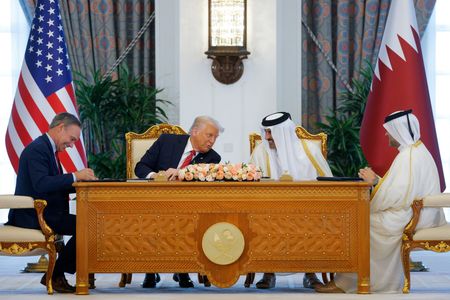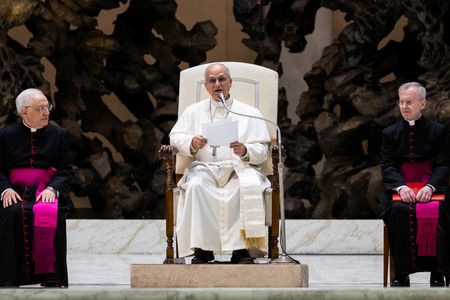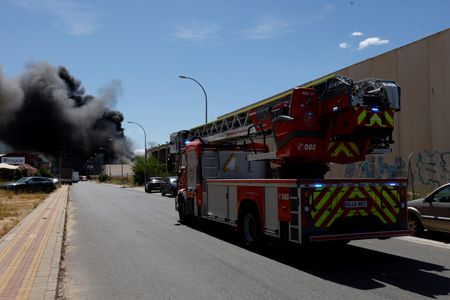By Timour Azhari
DAMASCUS (Reuters) – Syrian Finance Minister Yisr Barnieh made a call to global investors on Wednesday to come do business with Syria after U.S. President Donald Trump’s surprise announcement that he would lift all of Washington’s sanctions on the country.
“Syria today is a land of opportunities, with immense potential across every sector—from agriculture to oil, tourism, infrastructure, and transportation,” Barnieh said in an interview with Reuters at the Finance Ministry in Damascus.
“We envision a central role for the private sector in the new Syrian economy. The finance ministry’s role is not to spend indiscriminately or act as a regulatory enforcer over businesses, but rather to enable and support growth.”
A wall outside his office still bore the discoloured outline of one of the many posters of former strongman Bashar al-Assad that used to hang in Syria’s public buildings before his ousting by Islamist rebels Hayat Tahrir al-Sham last year.
Changes in Syria have been swift since Assad fled to Russia in December of last year.
Former rebel commander Ahmed Sharaa was appointed president, formed a government and had quick success garnering Gulf Arab support and getting most European sanctions lifted.
The stunning turn of events was capped by a meeting between Sharaa and Trump in Riyadh on Wednesday after Trump’s pledge to cease U.S. sanctions imposed on Syria under Assad-family rule, measures widely seen as the biggest external obstacles to the country’s economic recovery.
Trump has not set out a timeline for removal.
“One of the most critical outcomes of lifting sanctions would be Syria’s reintegration into the global financial system,” Barnieh said.
“This would allow us to restore financial flows and attract investments, which are urgently needed across all sectors,” he said, adding that Syrian authorities have already seen strong interest from Saudi Arabia, the UAE, Kuwait, Qatar, and several EU countries, among others.
He noted that the government is undertaking a comprehensive overhaul of public financial management, including reforms to the tax system, customs, and banking — part of a broader effort to modernize an economy long burdened by an oversized public sector.
He also struck a cautioning tone, saying that the removal of sanctions would be just the first step in a years-long recovery for a country ruined by 14 years of war.
“The lifting of sanctions is not the final chapter,” he said.
“We cannot afford to become complacent. We are entering a new phase that demands real results and visible progress on the ground.”
(Reporting by Timour Azhari in Damascus; Editing by William Maclean)

